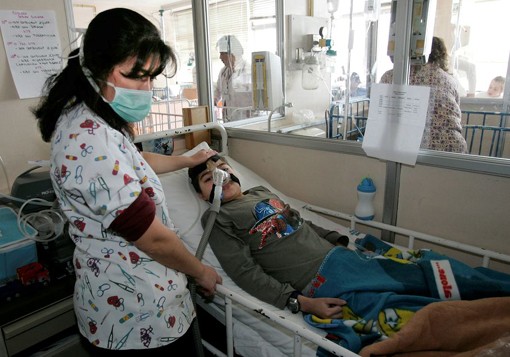Serious respiratory infection spreads to kids in New York
Rare enterovirus D-68 has hospitalized hundreds of children in Midwest

Rare enterovirus has hit kids in New York. AP photo
More than a dozen children in New York State have been made ill by the same respiratory virus that has sent hundreds of kids in the Midwest to the hospital.
The NYS Department of Health warns that enterovirus D-68 can cause severe illness among children, and is especially tough on kids with asthma.
Cases have been confirmed in the Capital Region and Central New York, according to DOH. Specimens from other regions are being tested now.
